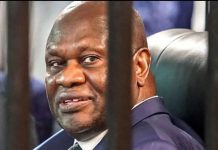Venansio Muludiang
Africa-Press – South-Sudan. The late President Julius Nyerere of Tanzania once said: “You cannot be walking when everybody else is running.” South Sudan must wake up to the realities of the 21st century. The lame excuse that we are a new country has expired and should no longer be entertained.
Those of us who are old enough to have started schooling in the early 1950s will remember the “bush schools” that existed during the colonial period. These were day schools in the villages that pupils enrolled in for two years before advancing to the boarding elementary school proper. They were built with temporary materials, using local labour, and manned by approved teachers. In short, they were simple but real schools.
In South Sudan, one hears of institutions of higher learning that are called by different names at different times but do not exist in reality. These “bush universities” are sometimes referred to by the Ministry of Higher Education as university projects, university colleges, polytechnics, or universities, and are headed by pseudo-CEOs whose titles are not even clearly spelt out.
I don’t know if the ministry is aware that establishing a polytechnic is much more costly than building a university. Such institutions are supposed to be located in Bentiu, Aweil, Yambio, and Torit. But the crux of the matter is that they do not exist. Otherwise, they should have started admitting students. Even if they were to be called community colleges, they ought to be functional, and their presence should have been felt by the communities hosting them.
Public universities are normally established by acts of parliament. They are not just given out as political gifts to states or communities. Universities were and continue to be given as deceptive gifts in Sudan and South Sudan after independence to appease states or communities and give them the false impression that they have not been left out of the national development effort.
If you look at the way the functioning public universities in South Sudan were created, only the University of Juba was established by an Act of Parliament. The rest were merely products of pronouncements by the political establishment.
But universities do not just fall from the sky; they are built by governments or private individuals. They must also conform to certain minimum operational standards. Besides, calling an institution a university doesn’t make it one. In this regard, South Sudan has a lot to learn from its eastern neighbour, Ethiopia. This country is the second most populous country in Africa after Nigeria. In Ethiopia, the public universities are built by the government and are well equipped with modern facilities.
The campuses are real campuses that are distinctively recognisable and academically better than the private universities. In South Sudan, with the exception of Dr. John Garang Memorial University, which is operating in prefabs, the other four public universities are squatting in dilapidated secondary schools. It is only the University of Juba that has substantially added more modern facilities to its Main and Customs campuses, thanks to the “unity fund’’,” donor support, and an innovative administration.
In conclusion, I am appealing to the government of South Sudan to take the establishment of universities seriously. If the ruling party has run out of political positions with which to reward its cadres, creating positions of pseudo-vice chancellors to run imaginary universities is not a good option.
I know the government has created political mayors for village towns that have not even attained the status of municipality simply because it has run out of positions for commissioners. Please do not do that for universities. Let the political accommodation end with the legislative and ministerial positions. Universities are universal institutions of higher learning that must be properly established and recognised as such.
For More News And Analysis About South-Sudan Follow Africa-Press






